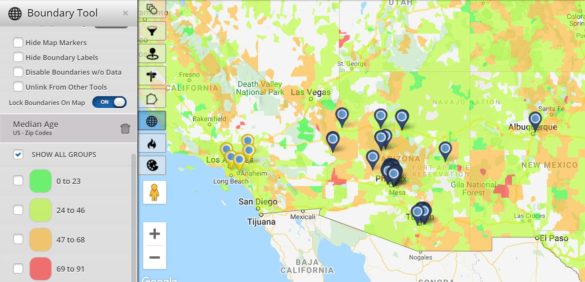
The most successful companies know they can’t appeal to everyone. We’re all different, with our unique likes and dislikes, so when businesses try to make all of us happy they end up making none of us happy.
That’s why companies work so hard to find their specific target market and customer. If they can identify a subset of the population that absolutely loves their products they can market directly to them and generate enough sales to continue to grow their business.
Keep reading to learn how to identify your target customer and what you need to do to market to them effectively.
Table of Contents
Before you find your target customer you need to define your target market. This is the market segment that you feel has the highest potential to buy from you.
For example, a gym might determine its target market is people aged 18 – 34 making $40,000 – $85,000 per year. While this group is extremely broad, it’s a good starting point. Once your target market has been defined it’s time to dig deeper and get more specific.
Your target customer is the person you know will be most interested in your products and services. To find this person you must take your target market and narrow it down until you’ve found your ideal buyer persona.
Let’s use the gym as an example again. After expanding on the target market they established in the last section they might determine that their target customer is someone aged 23 who makes $53,000 a year and enjoys an active lifestyle.
With your target customer identified you’re ready to start using this information to your advantage and marketing your business more effectively.
In the past, brands would market to as many people as they could. There wasn’t as much data as there is today so it was more difficult to determine who exactly was buying from them. So they promoted their business everywhere hoping to get in front of as many potential customers as possible.
Some large brands with bigger budgets can still get away with this, but it’s not the best strategy. Most businesses agree that finding your target consumer and marketing directly to them is the right way.
Here’s why:
Sales and marketing campaigns can help you grow your business, but they’re also expensive. Sure, they might help you bring in more revenue, but if they cost almost as much money as they bring in are you really getting ahead?
Finding your target customer means you don’t have to waste valuable marketing dollars on people who aren’t interested in your products. By focusing your attention solely on those who are passionate about your products you will:
This makes it possible to reduce your sales and marketing spend while maintaining or even surpassing your previous sales figures.
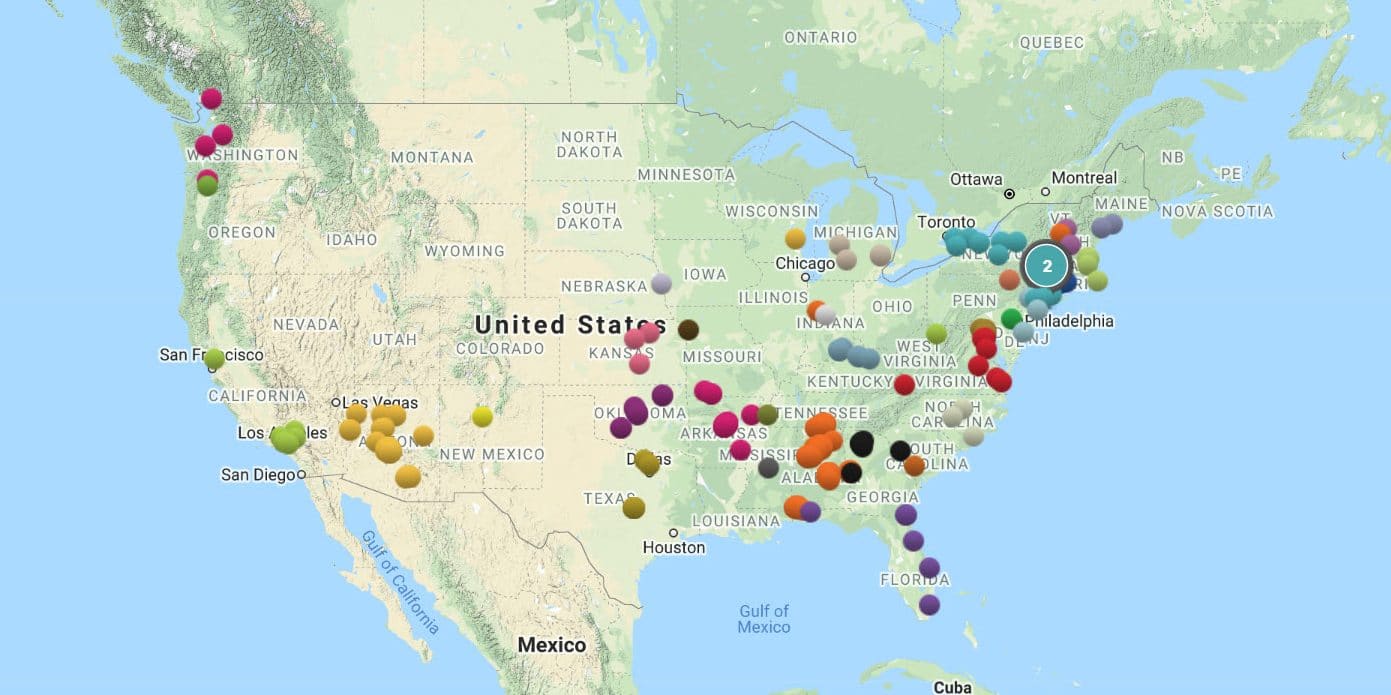
It’s quite likely that when you started your business you had an idea about who your specific audience would be. Most companies do. The interesting thing is, quite often they’re wrong. It’s possible that all this time you’ve been focusing on the wrong group.
Going through the process of finding your target customer forces you to look at the data and actually see who’s buying your products and services. The results may surprise you and you might have an entire customer base you weren’t aware of. This is a massive opportunity.
These people are already buying from you without any marketing directed towards them. By actually targeting them with your marketing efforts, you can grow your sales amongst that audience even more.
By narrowing your audience and keying in on a specific group of people you’re able to better understand their wants, needs, and desires. You become an expert on your niche market and the customers that are interested in it.
This has two benefits:
Knowledge is power and by knowing your target customer you’re able to create a business that serves them better.
Building on our last point, when you know who your target customer is your brand message becomes more clear. Advertising is no longer a guessing game. You can create ads and pitches that resonate with people who have proven to be interested in your business.
But this goes beyond messaging. The rise of digital marketing, social media, data collection, and mapping software means you’re able to decide exactly who receives your advertising and sales calls.
Define your ideal customer then ensure they’re the only ones who receive your marketing and promotions. The right messaging combined with the right targeting leads to better results.
A large reason people choose brands is that they relate to them. Something about a brand makes them feel like it was created just for them. This doesn’t just result in sales, but also loyalty.
The advantage of identifying your target consumer is you can build a brand that they can relate to. Sure it won’t speak to everyone, but the people that do buy from you will be extremely passionate about your business and they’ll be far more likely to stick with you long-term.
Remember, a small group of loyal customers is far more valuable than a large group of customers who will jump ship as soon as something newer comes along.
We’ve established why you should find your target customer, but how do you actually go about doing that? There are three main areas you need to look at:
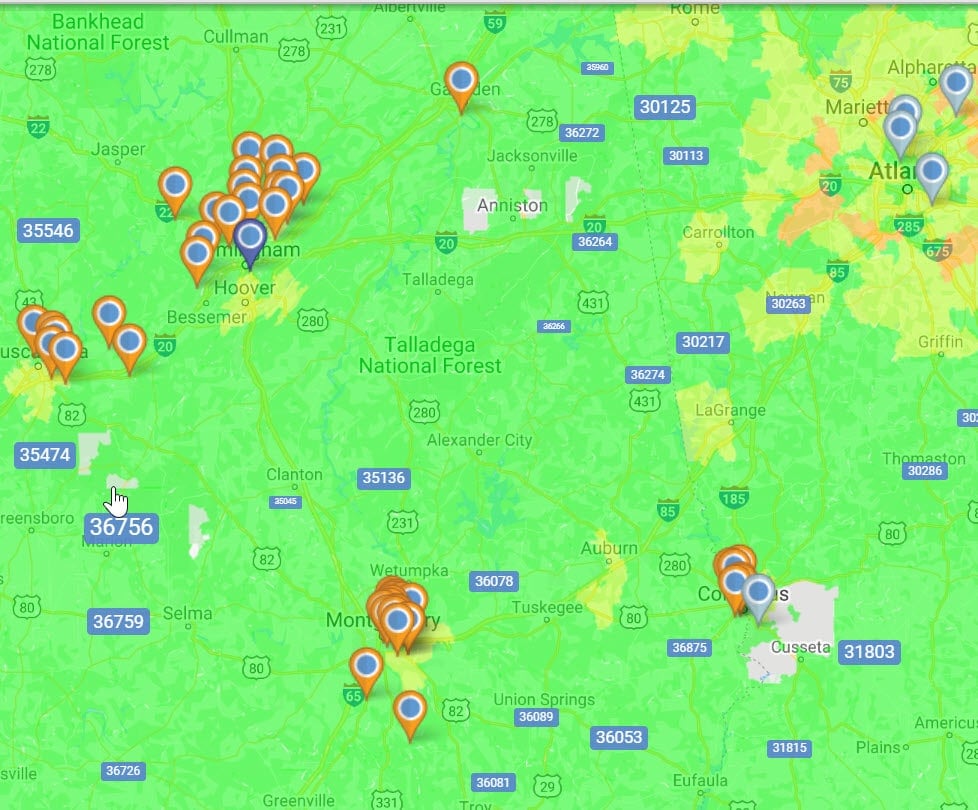
The best place to start is your customer base. That is, the people who are actually buying your products and services.
Review the data on all your previous customers to determine which types of people are drawn to your business and brand.
For example, after plotting the locations of all your sales on a map you might find that most of them occur in urban areas. Why is that and what does that tell you about your market?
Answer these questions and you’ll be well on your way to uncovering your target consumer.
If you’re thinking about your target customer chances are your competitors are thinking about it as well. It’s quite possible they’ve figured it out and are already targeting those people.
Do your research and determine who their marketing is geared towards and who is buying from them. This has two main benefits:
While your competitors can help guide you towards the right target audience you don’t want to copy them completely. Then you’re fighting over the same customers. Instead, see if there’s a niche within the market they’re overlooking that you could target.
Take a long look at each of your products and services and ask yourself the following questions:
It’s possible that your target customer hasn’t found your brand yet. By examining your offerings more closely you may discover a new audience that could help you grow your business.
Sophisticated software like Maptive makes sure you’re targeting the right customer for your business. Upload your data to visualize your entire customer base and build more effective sales and marketing strategies.
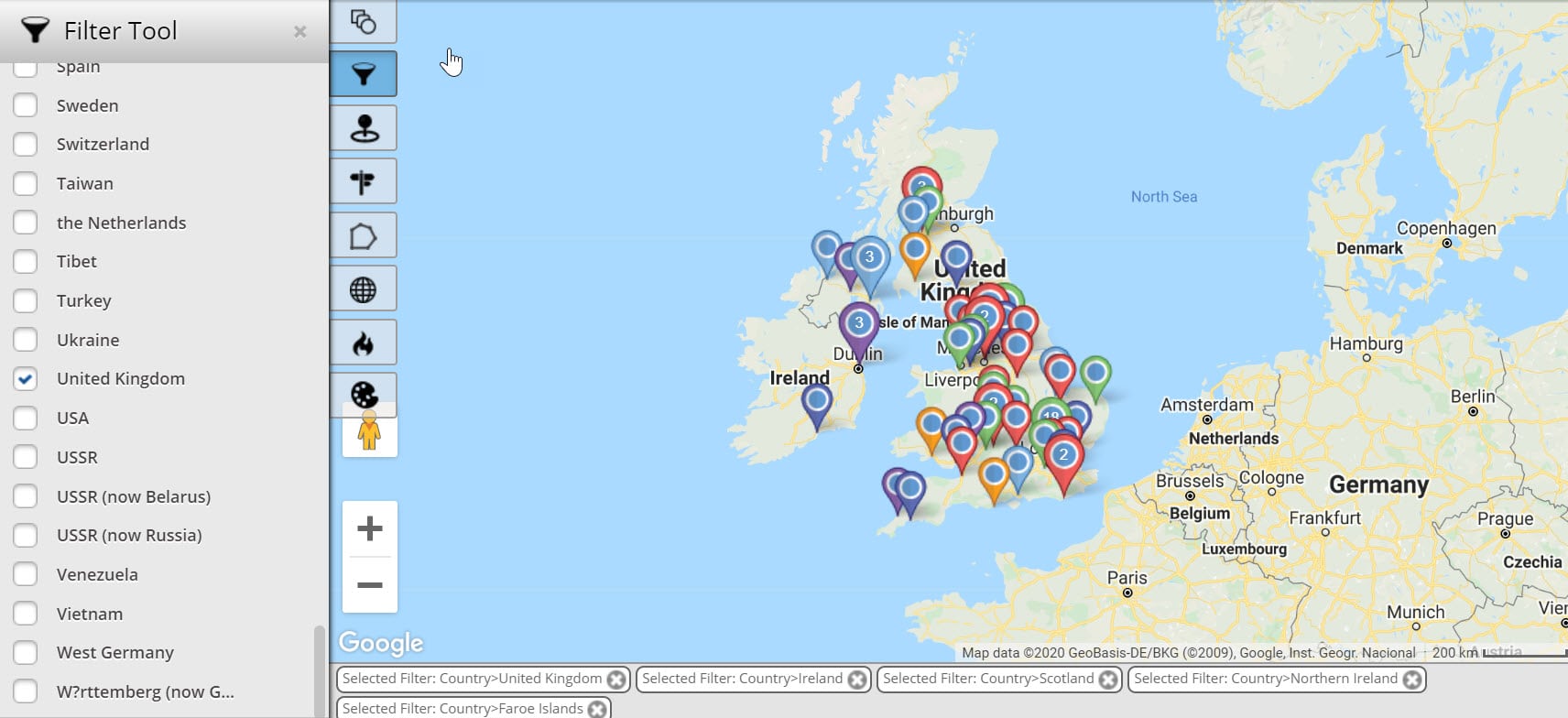
Filter your previous customers and leads based on the profile of your target customer. Remove those who don’t fit your criteria and focus solely on the prospects you know are most interested in your products and services. Target them with ads and sales calls to increase your conversions and generate more sales.
Maptive gives you access to a wide range of demographic data, including age, gender, housing, income, education level, labor, and more. See where your ideal customer is located and target them more effectively.
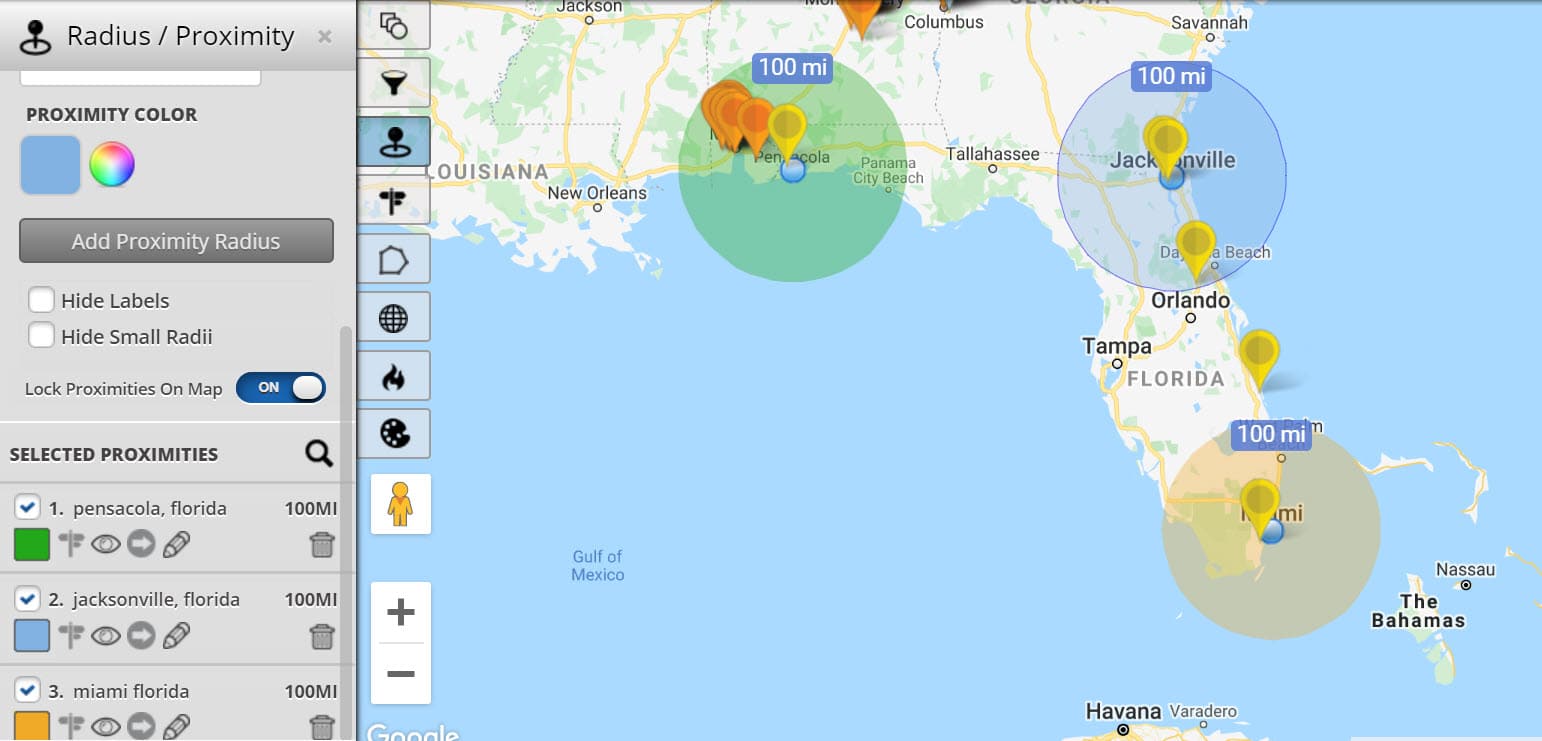
Once you’ve determined where your ideal customers are located plot your business locations and sales reps to see who’s nearby. Use drive-time radii and polygons to assign reps to each customer. Then optimize their routes to save time and increase the number of customers they can visit in a day.
Uncover new insights about your customers and easily plot the geographic locations of your target audience with Maptive. Sign up for a free trial and start creating beautiful interactive maps today.
Fred Metterhausen is a Chicago based computer programmer, and product owner of the current version of Maptive. He has over 15 years of experience developing mapping applications as a freelance developer, including 12 with Maptive. He has seen how thousands of companies have used mapping to optimize various aspects of their workflow.
